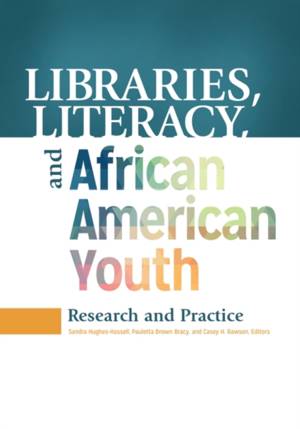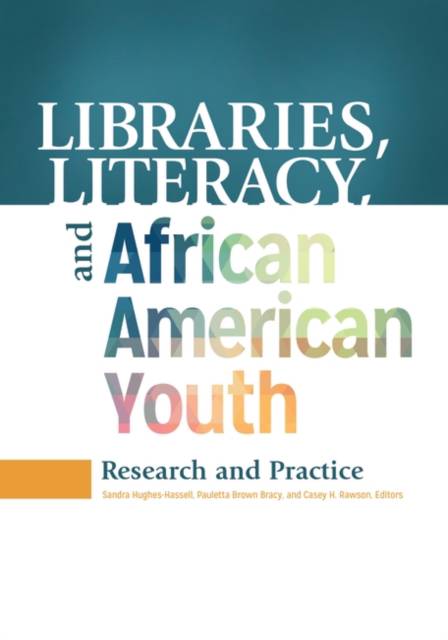
- Retrait gratuit dans votre magasin Club
- 7.000.000 titres dans notre catalogue
- Payer en toute sécurité
- Toujours un magasin près de chez vous
- Retrait gratuit dans votre magasin Club
- 7.000.000 titres dans notre catalogue
- Payer en toute sécurité
- Toujours un magasin près de chez vous
Libraries, Literacy, and African American Youth
Research and Practice
Sandra Hughes-Hassell
Livre broché | Anglais
93,45 €
+ 186 points
Description
This important book is a call to action for the library community to address the literacy and life outcome gaps impacting African American youth. It provides strategies that enable school and public librarians to transform their services, programs, and collections to be more responsive to the literacy strengths, experiences, and needs of African American youth.
According to National Assessment of Educational Progress (NEAP), only 18 percent of African American fourth graders and 17 percent of African American eighth graders performed at or above proficiency in reading in 2013. This book draws on research from various academic fields to explore the issues surrounding African American literacy and to aid in developing culturally responsive school and library programs with the goal of helping to close the achievement gap and improve the quality of life for African American youth. The book merges the work of its three authors along with the findings of other researchers and practitioners, highlighting exemplary programs, such as the award-winning Pearl Bailey Library Program, the Maker Jawn initiative at the Free Library of Philadelphia, and the Blue Ribbon Mentor Advocate writing institute in the Chapel Hill-Carrboro City Schools, among others. Readers will understand how these culturally responsive programs put theory and research-based best practices into local action and see how to adapt them to meet the needs of their communities.Spécifications
Parties prenantes
- Auteur(s) :
- Editeur:
Contenu
- Nombre de pages :
- 272
- Langue:
- Anglais
Caractéristiques
- EAN:
- 9781440838729
- Date de parution :
- 31-10-16
- Format:
- Livre broché
- Format numérique:
- Trade paperback (VS)
- Dimensions :
- 175 mm x 249 mm
- Poids :
- 544 g







